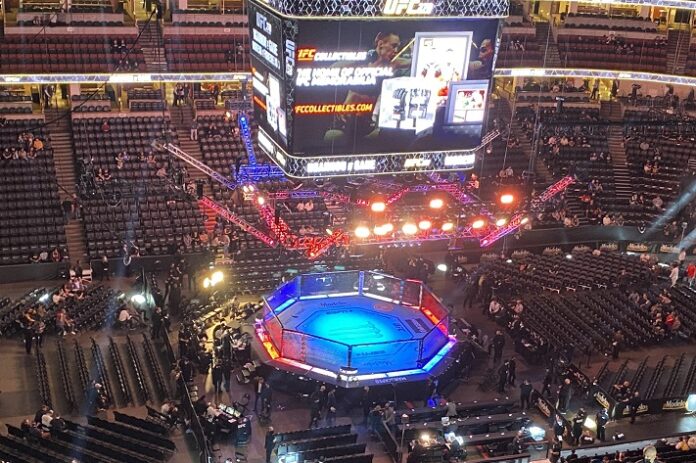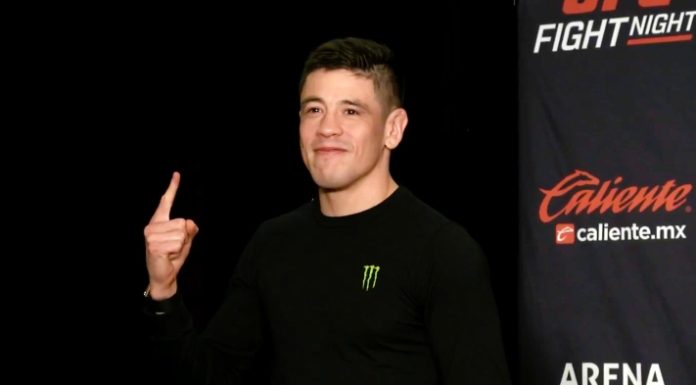
Following this past weekend’s main event match between Ketlen Vieira and Holly Holm, a disgruntled Holm made it clear in her octagon interview that she was convinced she did enough to win the fight, after she suffered a split decision loss. Many fans on social media sided with her, criticizing the judges. But Holm is not the only one to fall victim to questionable judging, especially in recent memory.
Earlier this month, Bellator MMA president Scott Coker voiced his stance against the judges’ decision after Logan Storley defeated Michael Page by split decision. Also from this month, Carla Esparza defeated Rose Namajunas by split decision to become the UFC strawweight champion, in a fight which the judging was also questioned by many. Last month, UFC bantamweight champion Aljamain Sterling earned a split decision win over Petr Yan, leaving many asking questions about that decision as well.
You get the idea. There have been plenty of dubious decisions from judges, with little accountability. The four fights referenced are from within the past two months. If you have followed MMA for a long time, you know that we could spend all day picking fights from the past that led to head-scratchers from the judges.
UFC president Dana White has famously said many times that if a fighter is unhappy with a decision after a loss, then they should do everything possible to not let the fight go to the judges next time they’re in the cage. A fighter’s title shot or opportunity at a contract could be in the hands of the judges.
Many have suggested that MMA should allow open scoring, which would allow fans, fighters, their corner, basically everyone watching know what the score is in-between rounds. While that would spark a sense of urgency for the fighter who is trailing going into a final round, it could also lead to a boring final round for the leading fighter, who might be far more tactical than aggressive. Those types of performances generally lead to boos from the crowd, followed by some not-so-friendly comments by White in his post-fight press conference.
Let’s be honest, if we allowed open scoring, it makes the coach’s job easier because they know where the judges stand. Part of fighting is having a good corner who will be honest and view the fight objectively and coach the fighter in response to how each round goes.
Another suggestion thrown out there is to have former fighters serve as judges. While it’s a great idea, let’s be honest, fighters are connected to one another and there could be a lot more favoritism than people think, either due to training at the same gym, friendships or other type of connections.
So, what’s the solution here? Easy: media requirements.
It is time to hold judges accountable. The best way to do that is for commissions to require judges to do post-fight press conferences. It would force judges to have to explain some of their decisions.
You may not agree with everything they say, but at least fighters, coaches, promoters and fans can get the explanation that is needed after a fight. We all know the media will absolutely ask the necessary questions after a controversial decision.
If judges were forced to face the media and answer questions publicly, maybe it will make them take judging more seriously, in addition to being more accurate. UFC announcer Joe Rogan once called out a judge for “not watching” a fight at UFC 247.
Obviously, no judge will want to face a question about not paying attention.
When certain fights lead to questionable decisions, everyone speculates why some fights were scored in weird ways. Sometimes judges will favor a champion far more than the champion deserves. Former UFC light heavyweight champion Jon Jones benefited from this after questionable decision wins over Thiago Santos at UFC 239 and Dominick Reyes in UFC 247.
Another reason why fans think judges unreasonably leaned toward a fighter is could be the hometown favoritism. Fans in attendance will always get behind the fighter from the hometown. Perhaps certain crowd reactions force judges to feel a certain type of way when scoring a fight. It’s also possible a judge might have a connection to a specific fighter.
At UFC 247, James Krause accepted a fight on 24 hours notice against Trevin Giles. Krause lost the fight by split decision, which was questioned by many. According to a write-up from MMA Fighting, which also sourced TSN, judge Joe Soliz received his Brazilian jiu-jitsu black belt from Eric Williams, who coaches Giles and cornered him for UFC 247. That’s an unacceptable conflict of interest and biased decision that stands on Krause’s record forever, which is absolutely something Soliz should have to answer for.
The problem is there are far more complaints than actual attempts at a solution for poor and questionable judging. But if judges were required to do media interviews, we could see a change in the sport in a positive way.
Again: media requirements could pressure judges to pay closer attention, which in turn could lead to fewer controversial judges. And even if we still get the same kinds of decisions, at least the judges explain themselves, reducing speculation as to why certain judges scored fights in questionable ways, whether we agree or disagree.




















